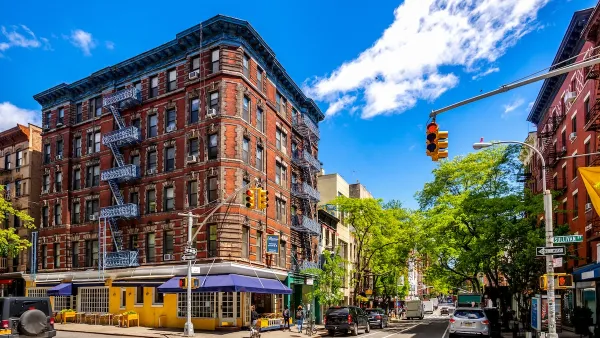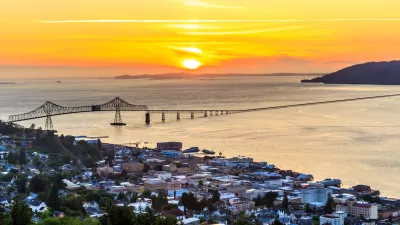A recent report shows that fast growing cities had lower incomes and bigger income drops during the recession. Mary Newsom digests the report and delves into what it means for cities looking forward.
The results of the report challenge conventional wisdom, and Newsom writes that cities might be best served by thinking twice about pinning prosperity solely on growth.
"Fodor looked at 2000-2009 data and found that on a series of measures, fast-growing cities were less prosperous than slow-growing ones. Fast-growing cities had lower incomes and during the Great Recession (i.e. 2007-09) saw greater income drops. He found no correlation between growth rate and unemployment.
I have some quibbles with his methods: His report doesn't appear to have looked at whether fast-growing cities might, until the recession slammed them, have had greater income growth. Many of the fast-growing cities are in the South, where incomes were lower to start with and where the recession has hit particularly hard.
But Fodor's point is that this bedrock assumption that growth automatically brings prosperity might not be true after all."
FULL STORY: Oops! Fast City Growth May = Lower Incomes

Planetizen Federal Action Tracker
A weekly monitor of how Trump’s orders and actions are impacting planners and planning in America.

Restaurant Patios Were a Pandemic Win — Why Were They so Hard to Keep?
Social distancing requirements and changes in travel patterns prompted cities to pilot new uses for street and sidewalk space. Then it got complicated.

Map: Where Senate Republicans Want to Sell Your Public Lands
For public land advocates, the Senate Republicans’ proposal to sell millions of acres of public land in the West is “the biggest fight of their careers.”

Maui's Vacation Rental Debate Turns Ugly
Verbal attacks, misinformation campaigns and fistfights plague a high-stakes debate to convert thousands of vacation rentals into long-term housing.

San Francisco Suspends Traffic Calming Amidst Record Deaths
Citing “a challenging fiscal landscape,” the city will cease the program on the heels of 42 traffic deaths, including 24 pedestrians.

California Homeless Arrests, Citations Spike After Ruling
An investigation reveals that anti-homeless actions increased up to 500% after Grants Pass v. Johnson — even in cities claiming no policy change.
Urban Design for Planners 1: Software Tools
This six-course series explores essential urban design concepts using open source software and equips planners with the tools they need to participate fully in the urban design process.
Planning for Universal Design
Learn the tools for implementing Universal Design in planning regulations.
Heyer Gruel & Associates PA
JM Goldson LLC
Custer County Colorado
City of Camden Redevelopment Agency
City of Astoria
Transportation Research & Education Center (TREC) at Portland State University
Camden Redevelopment Agency
City of Claremont
Municipality of Princeton (NJ)





























